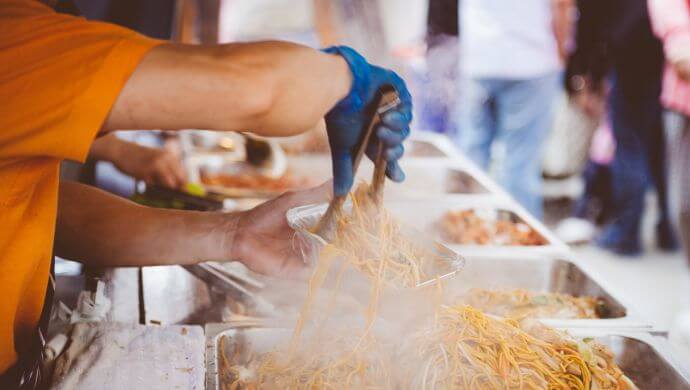Competition is getting tougher with some startups claiming wins, while some are being pushed away from the stage

Last week seems to be a tough one for startups working in F&B sector in Indonesia. In the food review and listing sector, OpenRice reportedly closed down its Indonesia office. Meanwhile, in the food delivery sector Foodpanda is also set to sell its business in the country, according to TechCrunch.
The report stated that Foodpanda is selling its business in Indonesia for less than US$1 million and that “an all-cash deal isn’t even a requirement.”
“Foodpanda has grown very fast in Southeast Asia over the last couple of months and strengthened its market leading position in the region. Driven by our increased dominance in the region we have experienced interest from a variety of different parties to partner or to invest which we are evaluating now,” said a Foodpanda spokesperson.
The competition is indeed tough in the market as some startups have begun to be able to claim the throne in this tough game of F&B industry. According to a DailySocial digital consumer behaviour report, 87 per cent of food delivery service are dominated by Go-Jek’s Go-Food, seven per cent owned by Grab’s GrabFood (even Porter Kakilima, which was a partner of Jakarta SmartCity initiative, is nowhere to be seen in this list), with only four per cent actually owned by Foodpanda.
Despite Foodpanda’s claim of “very fast growth,” the report is a real source of concern especially if we are looking back at what had happened to its operations in Vietnam and India.
Also Read: foodpanda’s loss is Delivery Hero’s gains
Now what can startups do? Considering how more companies are looking to enter –or have begun entering– this lucrative market, perhaps we can look at the pattern of what makes a food delivery startups successful in Indonesia:
Location, location, location
Now I am going to speak in the perspective of a user of both the Go-Jek and Foodpanda app. I have deleted the Foodpanda app since months ago, while maintaining Go-Jek’s, because of the variety that Go-Food has given me. It goes beyond listing everything from nasi Padang to croque monsieur sandwiches in their portfolio; it also has something to do with the variety of restaurants an app offers depending on the user’s location.
When I was working at an advertising agency in Kemang, South Jakarta, I would order my lunch from Foodpanda everyday. Because Kemang is a trendy spot in the city and there are abundance of cool cafes and awesome restaurants to eat from; using Foodpanda in this area is a blessing.
But now that I am working mostly from home in suburban Kalimalang, East Jakarta, Foodpanda had become a bore as only BurgerKing and A&W would show up in my list whenever I open the app.
Those fast food restaurants already have their own delivery services, why would people need to get them from the panda? And I am not ordering my lunch from Kemang. I need something nearby that does not need to battle too many traffic jam hotspots.
There goes the app from my phone.
Also Read: foodpanda acquires delivery.com’s Hong Kong operations in tasty acquisition
All you can eat
Let’s face it, gone are the days when users would need one app for one specific purpose. The upcoming trend will be integration; instead of having to download different app for taxi booking and food delivery service, users want to be able to do everything in one app.
And yes, looking at the phenomenal success of Go-Jek, I suspect that this is the actual key to their success (instead of promos and discounts that might actually threaten the business’ sustainability).
Seeing how local players such as Go-Jek scoring the top position for food delivery service in this market, it is easy to fall into the “local players know best” mindset when trying to deduce this issue. Well, if that is the case, then Porter.id will come in second place now.
I suspect that, as described in the two points above, this is more of an issue of understanding the trends in mobile app use. Understanding local market (i.e the best places to eat) is only half of the story.
Your move, Uber.
—
Image Credit: Clem Onojeghuo on Unsplash
The post Free lunch no more: For food delivery startups in Indonesia, this is the time to rethink their moves appeared first on e27.